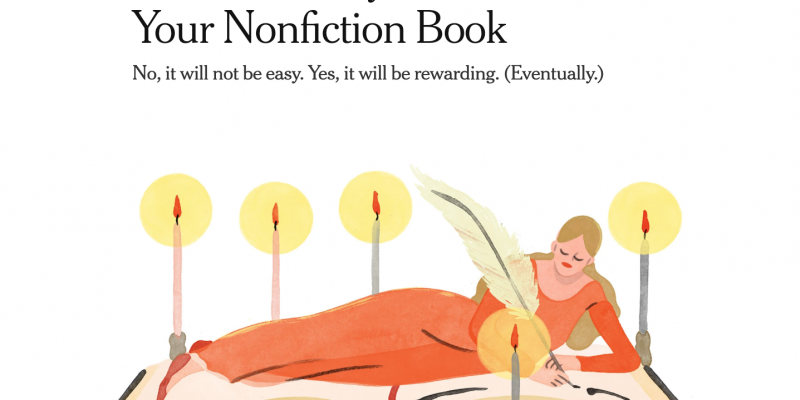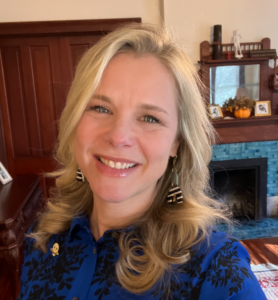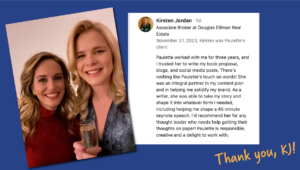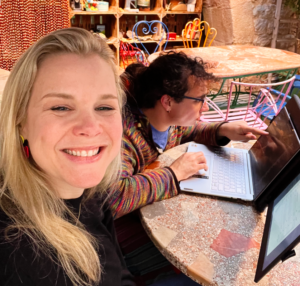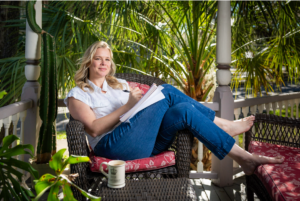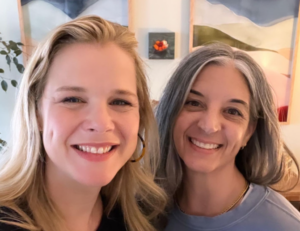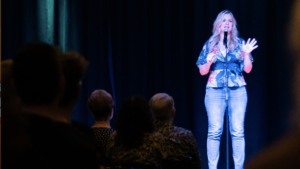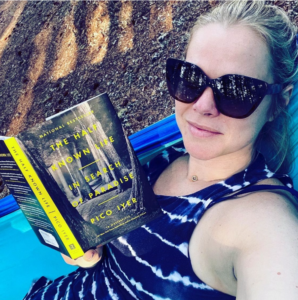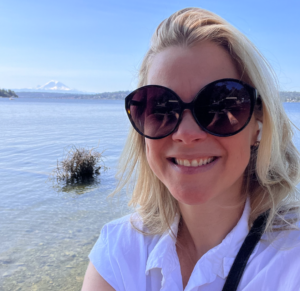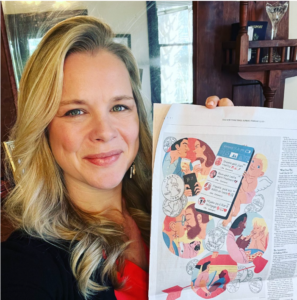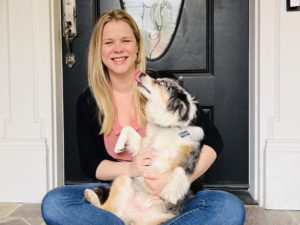I feel so lucky to have been included in this story in The New York Times about how to finally finish your non-fiction book. Of course, they could only use a fraction of my interview, but I have the whole thing for you if you’re interested. See below!
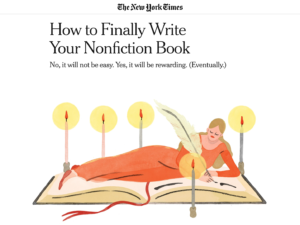
If you’re busy and working a full-time job, how do you find time to write your book?
I tried a few different configurations when I had my full-time job writing proposals for a tech company. I tried to write at lunch, but I found I couldn’t put my mind in that personal place while in a public lunchroom. I tried to sneak in some writing at work, a la George Saunders, but I found I felt too guilty. I tried waking up at 5 a.m. to write before work, but I found that at 5 a.m. I prefer to sleep.
A few things ended up working for me. Firstly, since money can equal time in some ways, I used my steady paycheck to buy myself time to write. For instance, I outsourced the cleaning of my place once a month while I went and wrote for three hours in a coffee shop. Secondly, I used the salary to buy myself accountability with writing courses, so that there were people waiting for my finish work when I didn’t yet have an editor. I call these accountability measures “fake-outs,” and they’ve made all the difference for me. Lastly, I gave myself a small daily goal, shared it with my loved ones, and made it a part of my daily life. One of my most productive times was when I decided that I would work on writing or editing for one hour per day. If I turned on the tv after work, it was over, so I made myself walk from the front door into my writing space as quickly as possible after getting home.
Your willpower decreases toward the end of the day, so get it done as early as possible. But if you have kids, right after bedtime works for a lot of people.
Also, I eventually realized I’m not the kind of person who can keep a TV in my home, for the same reason others might not have vodka.
How long does it take to write a book?
I think you should plan for at least one year to write the first draft of a book, and a second year to rewrite it. It can take much longer, twice or three times as long as this. But if you want to make a schedule, a goal of when to have your book done, I think two years from now is average.
If you write a page a day, that’s 365 pages in a year, aka a book. I also, when writing my second draft, made myself copy over the entire book, rather than just reading it. There’s nothing that makes you examine whether a word is worth rewriting than having to rewrite 75,000 of them.
Where do you start? Which chapters do you dig into first? The ones you’re most excited about?
I’ve always written by what excites me first. I write a sentence, or an idea, and that grows into a paragraph and then a page or so, then another section grows, and they kind of grow into each other and form one thing, like algae in a petri dish. I think this works better in non-fiction than fiction. For fiction, it seems like it’s best for most people to go chronologically.
Generally, you have three options for starting: You can just write out a mess of a first draft; outline a little, then write a little, then do it again; or try to outline the entire thing.
Writing is like putting together Ikea furniture. There’s a right way to do it, but nobody knows what it is. You just kind of muddle through with the tools you have at your disposal, fit what seems to go together, take apart what isn’t working, and after much longer than you thought it would take, stand back and realize you have something functional.
Any tips for organizing your writing workflow?
Writers should listen in on the field of project management. I learned about Gantt charts and organized my book in a gargantuan excel spreadsheet. I had about 100 sections listed in the rows, and steps to do for each one along the columns, everything from reading it out loud to retyping it to having a friend read it and give feedback. Can you believe I’m this nerdy? I have to be to get anything done.
It’s an insanely complex process. You have to learn to plow through the chaos. One thing to remember is that it’s always chaotic. The more organized you can be as you go along, the better. Scrivener is a wonderful helper, as are Excel for organizing lists, Pocket for marking research, and Evernote for organizing ideas. I learned how to be a total nerd watching classes on Lynda.com. I don’t think I could have finished a book if I hadn’t made myself learn systems and use them. I’m still that messy artist, but being a little bit of a nerd makes me an artist who completes work.

